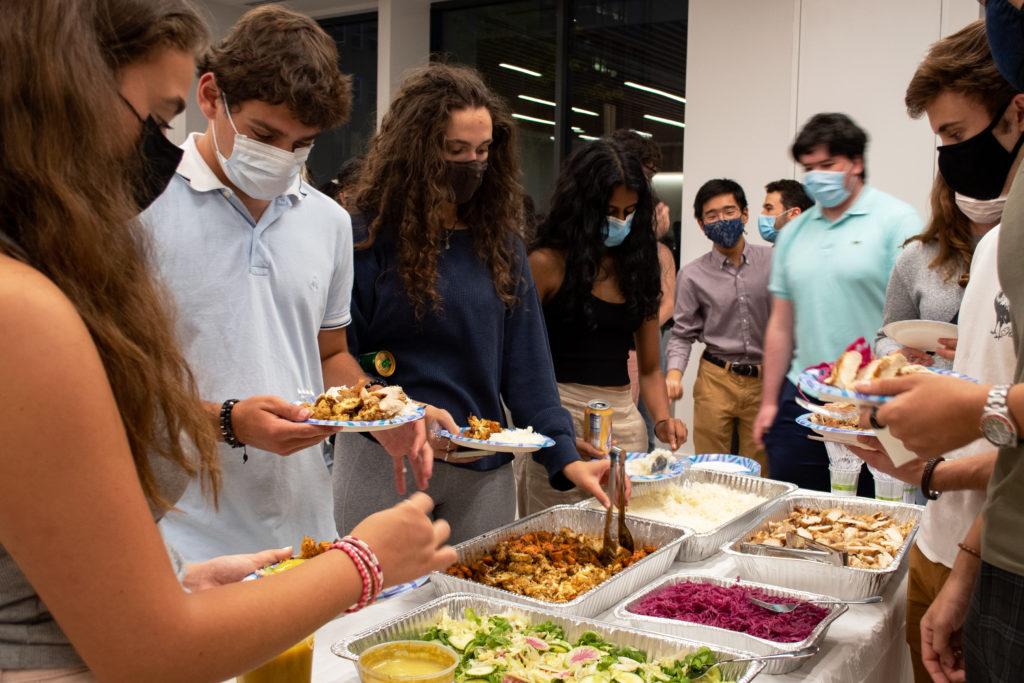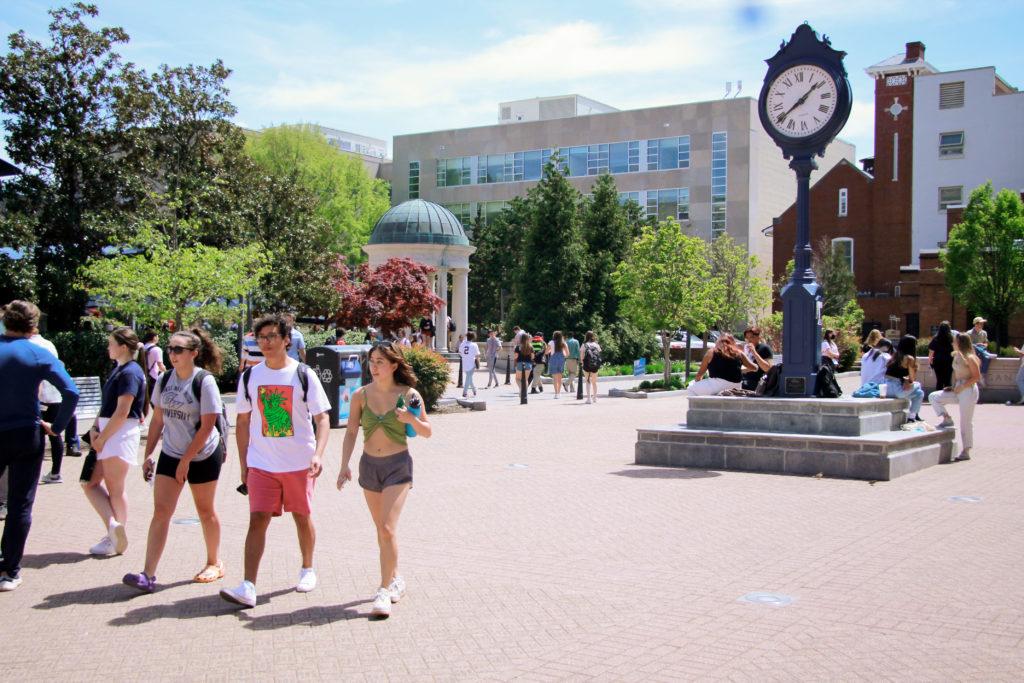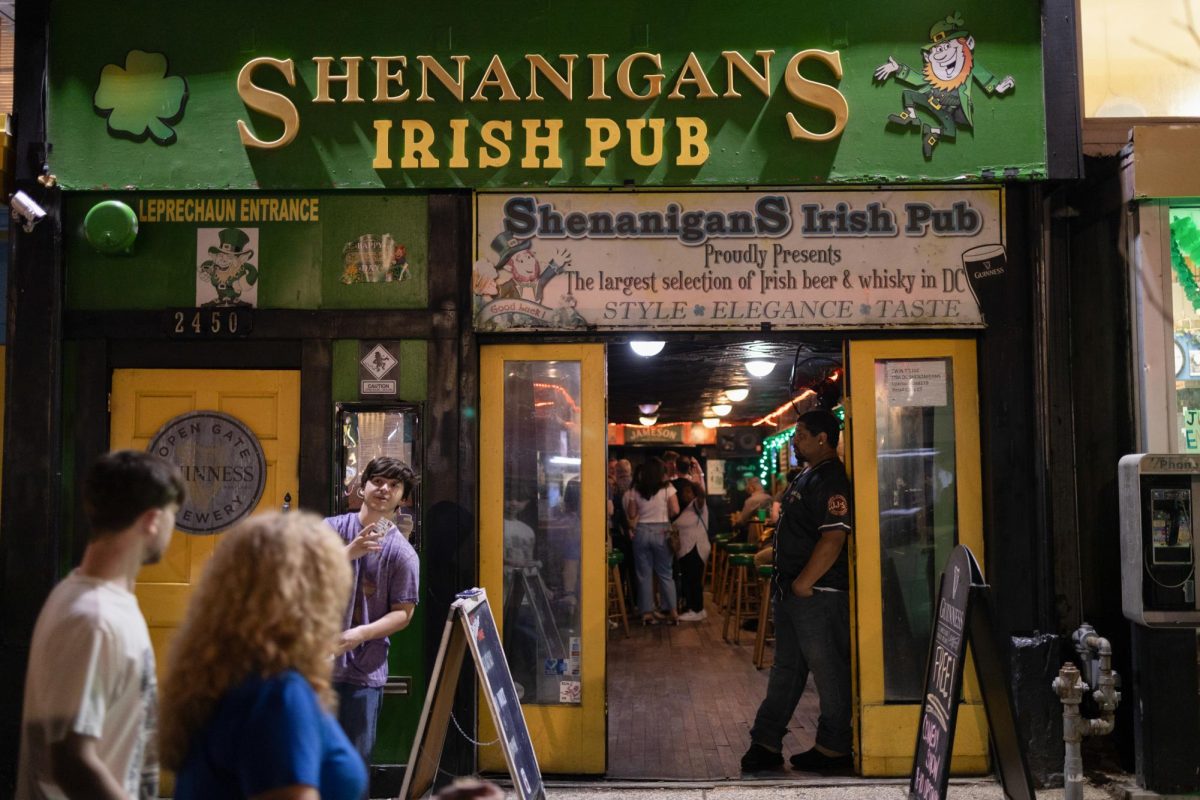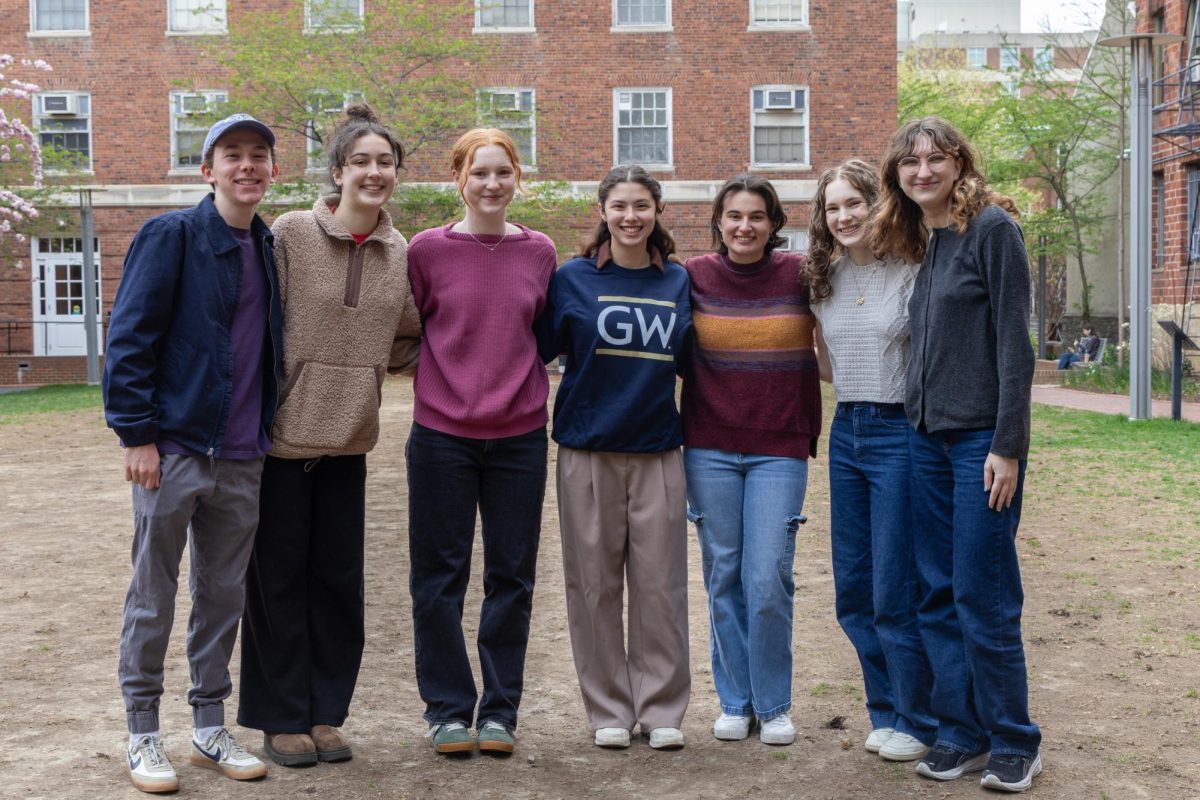Nicolas Rios has had debates with his Hispanic friends over how to say the word “straw” in Spanish.
Rios, a graduating senior who studied international affairs, said some of his friends he met in the Cisneros Leadership Institute spoke different dialects of Spanish coming into GW and they all have different words for “straw,” like El Salvadorians who say “pajilla” or Puerto Ricans who say “sorbeto.” He said he uses the word “popote,” which is the Mexican-Spanish translation for the drinking utensil, but the joke has become a running gag for some students in Cisneros – which is symbolic of the greater cultural distinctions students integrate into GW.
“It’s little funny nuances and words and sayings and expressions,” Rios said. “It’s always a fun topic of conversation.”
Rios, from Tucson, Arizona, is among other graduating seniors who said they brought their home culture, whether religious, regional or ethnic, to GW through food, clubs, language and work while in attendance. Students said they incorporated their home culture into their college life, found community, joined multi-cultural organizations and chose their future jobs.
Rios said he highlighted his Mexican and American Southwestern culture in the Cisneros Hispanic Leadership Institute building, a “home-base” during his time at GW where he would relax, study and hang out with some of his friends on campus.
Rios also is among other students of color who cannot find tasty, authentic food from their home city, state or country in the District. Instead, Rios said he opts to try new cuisines he is not accustomed to like Peruvian, Venezuela or Argentinian dishes.
“I can’t find what I’m used to, but at the same time, I can’t find a lot of this food back home either,” Rios said. “So this is also an opportunity to learn more about other foods as you build out different tastes.”
Rios also said in coming to the District, his lifestyle sped up with the city. He said at home in Arizona the environment is slower paced and more carefree than D.C., and people will say hello while walking down the street or stop to make small talk with strangers.
“It’s small human interaction on the daily basis that I found that I was missing,” he said.
He said unlike Arizona, “grind culture” propels people in D.C. to work themselves to the bone. He said while in the past he has fallen victim to this culture in the District, he has tried to embrace his hometown attitudes to focus on slowing down to put his well-being before work.
“The grind will never stop unless you make it stop or you choose to change it,” he said. “There’s always going to be something else to work towards and stay up all night writing or so on, and so I think it’s going to be like an internal values shift.”
Robin Fern, a senior who studied public health and dance, said she explored her Jewish faith and gained a deeper appreciation for it while at GW through her work and involvement with student organizations.
“Everybody has their own experiences with Judaism and I didn’t realize how unique mine was until I came here and it helped me find my people,” Fern said.
Fern said she teaches at a Jewish Sunday school in Montgomery County, Md., bat mitzvah tutors and babysits for a family she met through GW Hillel. She said at GW she learned to find pride from her early life Jewish experiences, like reading from the Torah at a Jewish summer camp she attended every summer growing up.
Fern, who hails from Seattle, said people in the Pacific Northwest are more empathetic than those in D.C., and that quality helped her understand the different backgrounds of people who attend GW, leading to more friendships throughout her four years. She said her Jewish culture and empathetic worldview connected her to a “tight-knit” place on campus over her four years at GW.
“It’s helped me discover who I am and it’s fun to reflect on who I thought I was and who I knew I was when I entered GW at age 18 and now reflecting back at age 22, to be like, ‘Wow, I am a different person with the same values,’” she said.
Jennifer Garcia, a graduating senior who studied political science and English, said she has been able to dive deeper into her Mexican heritage through food. She said during the COVID-19 pandemic she moved back to her home in a small town of Georgia, where her mom taught her to cook Mexican dishes like tostadas, picadillo, albondigas and flautas.
“I’ve definitely connected way more with my Mexican heritage through food, and so I hope that that’s something that I can keep up,” she said. “And hopefully after I graduate and I’m off of GWorld, I can go to a market that has actual spices that can replicate my mother’s cooking.”
Garcia said after she moved from her small town in Georgia to GW, she was exposed to a more diverse student body and a variety of new cultures. She said the Hispanic community at the Cisneros Institute welcomed her with open arms.
“It’s been such a strong ground, like strong foundation for me to not let go of my heritage and delve deeper into my Mexican heritage,” she said.
But Garcia said she hasn’t left all of her southern heritage behind.
“But I will say, I do enjoy some good cowboy boots,” she said.






